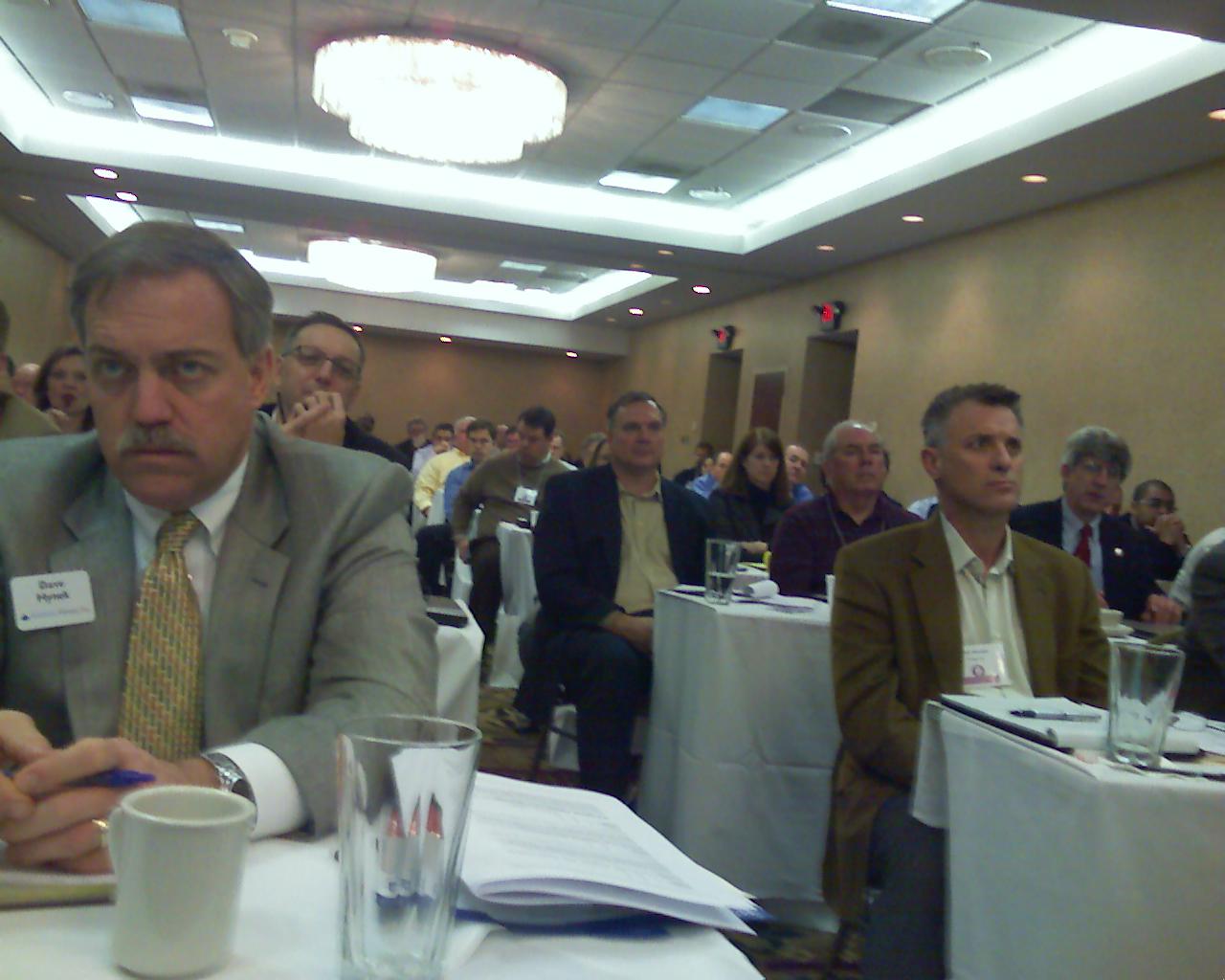Software needs to feel SaaSy


That's good news as in dollars-and-cents good news. As in survival of the firm good news. As in getting through the next recession with a job good news.
So they didn't look happy (especially that guy right behind me). But inside it was a different story. Because they were paying attention. Serious attention. Even rapt attention.
Bob Conlin of Centiva talked about sales commissions. Russell Foy of RymaTech discussed product management. Erik Seifert of Atlantic Crossing gave a case study of transitioning from a licensed model to a SaaS model.
Yet when I say they listened with rapt attention, I mean rapt. We're talking Celine Dion before the encore rapt. Creflo Dollar before the offering rapt. If they'd had lighters they would have flicked them. Play Freebird!
There was good reason for this rapt attention, for as Foy noted, "We're all SaaS now."
The seminar's aim was to get its listeners across the transition, from selling licensed packages to selling SaaS. This may seem at first like trying to jump the Snake River canyon.
But it just takes planning, Foy insisted. "In the old model everything was about closing $100,000 deals. With SaaS you can see a 5-7 year opportunity." Dollar signs lit in eyes.
Instead of thinking of "buy criteria," he added, think "use criteria." Sales costs drop, support costs drop, but you have to train people to get value from what you make. Once you do that, they're hooked.
Seifert showed how by charging 5% of the license fee/month, plus 2.5% per month for hosting, his company doubled unit sales. He also said that by selling three-year pre-paid contracts, he got 50% more revenue than he would have with licenses.
"The first quarter after you go to a new structure you won't sell anything. It will take time for the channel partners to figure it out." Like the first time you heard Queen's Bohemian Rhapsody.
But when Seifert showed a chart with the commissions earned on that pre-paid plan, it was music for the eyes. "When the rubber meets the road they prefer the money up-front."
Suddenly they got it. Another One Bites the Dust. As in the competition.
Wisdom worth paying for, I thought. Play Freebird again.